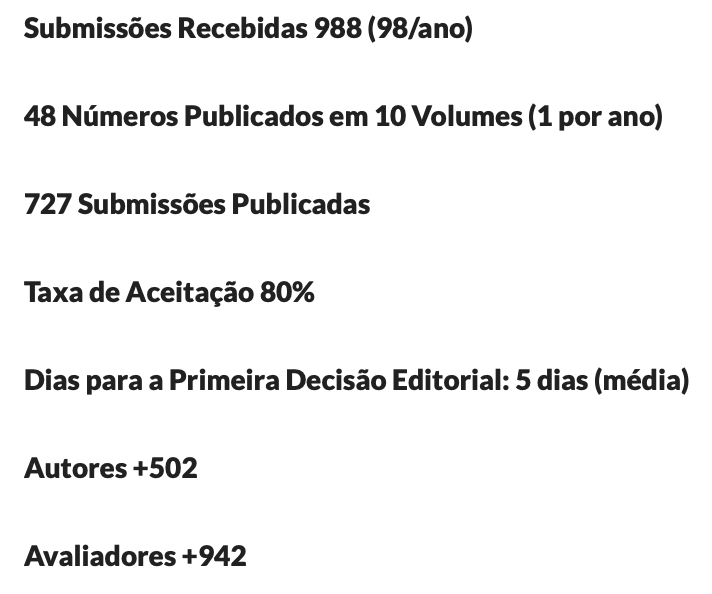Tourism and Big Data at brazilian scientific research
Keywords:
Big data, Tourism, Interdisciplinary model, Systematic Review of LiteratureAbstract
The increase in storage capacity and computer processing speed, combined with fast internet connections, development of algorithms and availability of large volumes of data on the network are factors that drive the era of big data. Considering the growth and diversity of possibilities for the use of big data for tourism research carried out worldwide, this investigation proposes to carry out a systematic review on the use of big data in tourism research, conducted by Brazilian researchers and published in national and international journals. After filtering 76 articles extracted from the Web of Science, Scopus and Tourism articles databases, this review analyzed 19 articles that met the criteria established in the protocol. It was found that studies on the use of big data in tourism are recent, starting in 2000, with a peak of studies published in 2019; carried out by a variety of researchers (57), allocated in different Research/Education Institutions (16), distributed across Brazil, Portugal and Spain, who published in different national and international scientific journals (15). The analyzed research contributes to several fields of tourism knowledge, according to Jafari's Interdisciplinary Model, especially for business management, tourism planning and development and tourist motivation, demonstrating a research niche that is still expanding and with few highlights. The results also showed that 47.4% of the articles have a qualitative-quantitative methodological approach, 63.2% carried out research whose data sources were generated by users and that the universities with the largest number of publications are in the region northeast of Brazil and are federal. Furthermore, this study can contribute to the recognition of the scientific production of Brazilians who have developed research using big data and foster the exchange of techniques, software, collection processes, analyzes and obtaining results that strengthen studies in tourism and overcome challenges both procedural and conceptual, as well as theoretical and methodological.
Downloads
References
Atallah, A. N. & Castro, A. A. (1998). Revisão sistemática da literatura e metanálise. Medicina baseada em evidências: fundamentos da pesquisa clínica. São Paulo: Lemos-Editorial, 42-48.
Hua, Y., Hualin, X., Yu, Q., & Yan, L. (2016). Make your travel smarter: Summarizing urban tourism information from massive blog data. International Journal of Information Management, 36(6B), 1306-1319, https://doi.org/10.1016/j.ijinfomgt.2016.02.009
Li, J., Xu, L., Tang, L., Wang, S., & Li, L. (2018). Big data in tourism research: A literature review. Tourism Management, 68, 301–323. https://doi.org/10.1016/J.TOURMAN.2018.03.009
Lohmann, G. & Panosso, A., Netto. (2008). Teoria do Turismo: conceitos, modelos e sistemas. São Paulo: Aleph.
Mazanec, J. A. (2020). Hidden theorizing in big data analytics: With a reference to tourism design research. Annals of Tourism Research, 83(May), 102931. https://doi.org/10.1016/j.annals.2020.102931
Mongeon, P. & Paul-Hus, A. (2016). The journal coverage of Web of Science and Scopus: a comparative analysis. Scientometrics, 106(1), 213–228. https://doi.org/10.1007/s11192-015-1765-5
Rother, E. T. (2007). Revisão sistemática X revisão narrativa. Acta paulista de enfermagem, 20(2), v-vi.
Zheng Xiang, Zvi Schwartz, John H. Gerdes, Muzaffer Uysal, (2015). What can big data and text analytics tell us about hotel guest experience and satisfaction? International Journal of Hospitality Management, 44, 120-130, https://doi.org/10.1016/j.ijhm.2014.10.013
Downloads
Published
How to Cite
Issue
Section
License
Copyright (c) 2022 Brazilian Journal of Production Engineering

This work is licensed under a Creative Commons Attribution-NonCommercial-ShareAlike 4.0 International License.

















































































